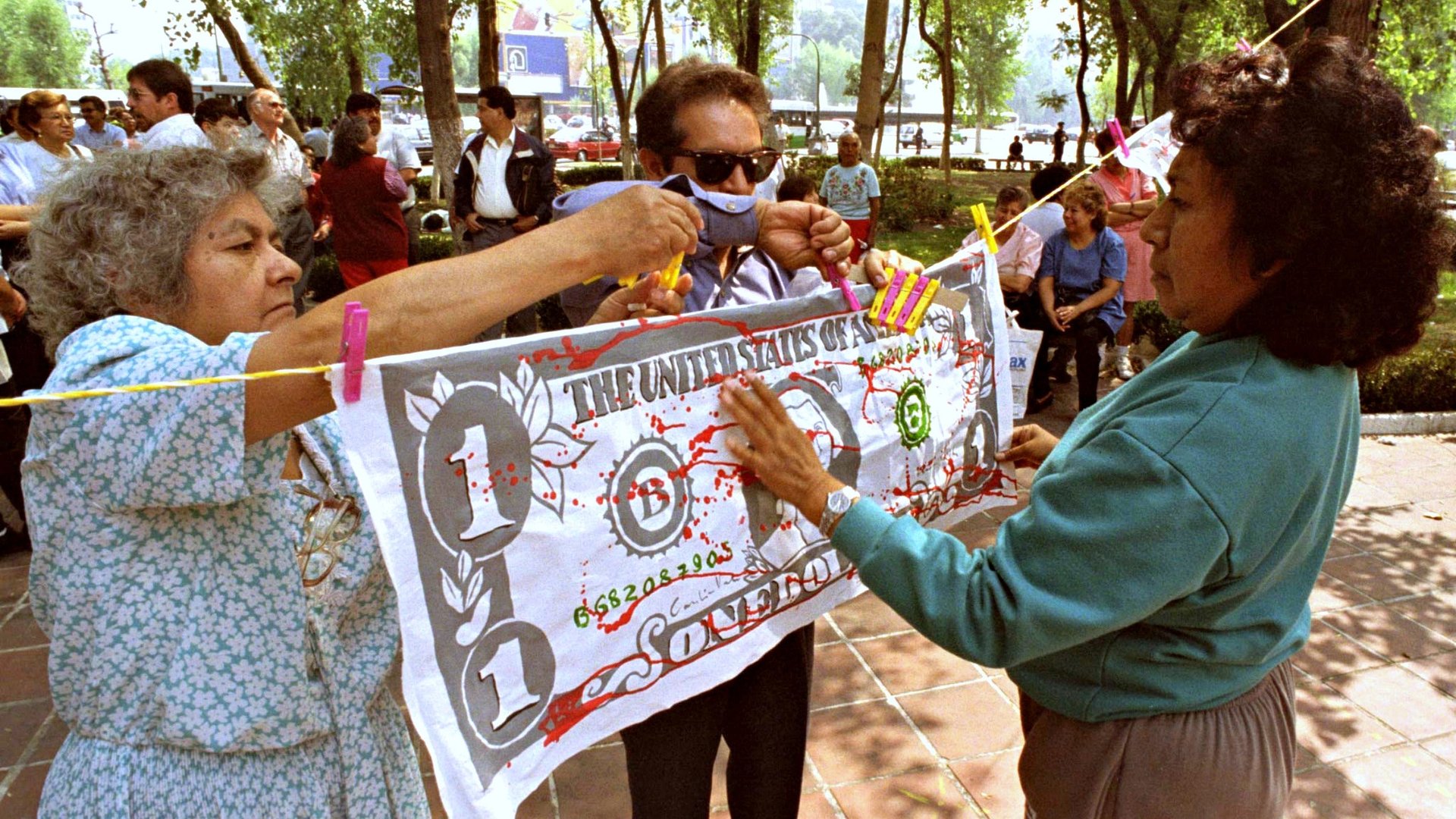Mexico’s new anti-money laundering law is bad for business
Money laundering in Mexico is big business: $10 billion in drug money was washed there in 2012, according to global risk management firm Kroll. Even so, Mexico’s latest attempt to crack down on the crime puts a hefty burden on the private sector in a country that’s been slow to target known launderers.


Money laundering in Mexico is big business: $10 billion in drug money was washed there in 2012, according to global risk management firm Kroll. Even so, Mexico’s latest attempt to crack down on the crime puts a hefty burden on the private sector in a country that’s been slow to target known launderers.
The law went into effect in July and focuses on “vulnerable activities,” or industries like gaming, jewelry, automobile, art and real estate that are often targets for money laundering because they handle large amounts of cash. The requirements vary per sector, but for most, cash transactions over a certain amount (pdf) must be reported to the government. In certain cases, identification is required for purchases regardless of the form of payment.
Jewelers will have to maintain files for customers who make purchases valued at more than 52,000 pesos, or roughly $4,000. This create challenges for jewelers who deal with international clients, said Miguel Cotero Ochoa, the president of the state of Jalisco’s Jewelry Chamber. Those clients will likely turn to other countries that don’t require such bureaucratic entanglements, he said.
“We support the authorities in their effort to combat this problem. However, some of the regulations in the law leave us out of the global competition,” Cotero Ochoa said in an interview in Spanish.
A consultant in Mexico City estimated the requirements will likely cost businesses in the affected industries 3-8% of their income (link in Spanish). Businesses are required to train employees and maintain an archive of those transactions that meet the law’s requirements, said Cotero Ochoa.
“The majority of our companies are small firms and the requirements and regulations the secretary of finance is placing are going to be impossible—or very complicated—to fulfill,” he said.
The jewelry industry plans to work with authorities to modify the law based on some of their concerns, Cotero Ochoa said. And they’re not the only ones challenging it.
Large retail chains in Mexico, including department stores like El Palacio de Hierro, Liverpool, Sears, and Sanborns, have already taken legal action (link in Spanish) claiming that the law violates their constitutional rights of equality and non-discrimination, free economic competition and tax equity. They, along with members of the real estate and automotive industries, argue that their businesses have been unfairly targeted while British bank HSBC was fined a mere $27.5 million in Mexico for its lax money-laundering controls.
While the law creates some difficulty for certain industries, it does provide information that investigators can use to figure out what channels criminals use to wash their money.
“One of the ways to combat money laundering is to cut off access to the financial system and the legitimate economy. What this law does is broaden the net,” Goldstein said.
Of course, with the law only a few months old, it’s too soon to determine how effective it’s been. Also, the government will have to take action and go after the individuals actually laundering the money.
“It will only be effective insofar as it’s enforced by the government,” Goldstein said. “I understand the concerns of the business sectors affected by this law, but I don’t see it as a shifting of the burden from the government to the private sector.”